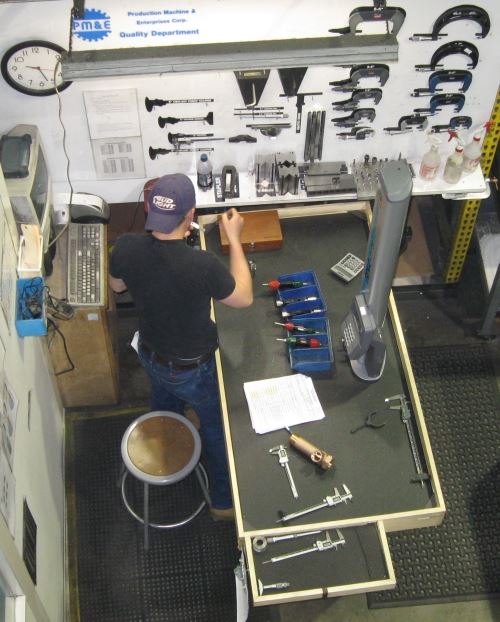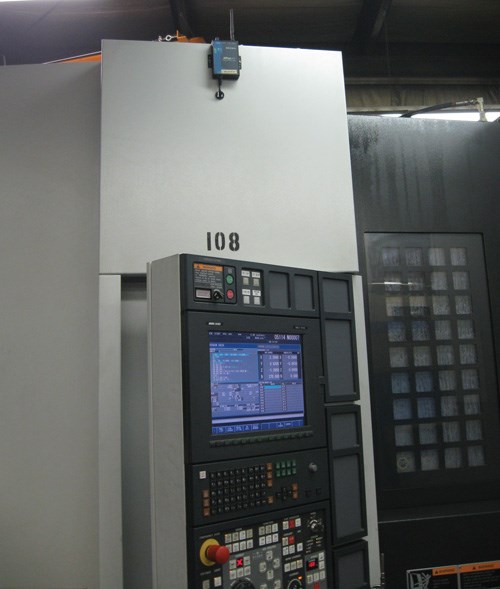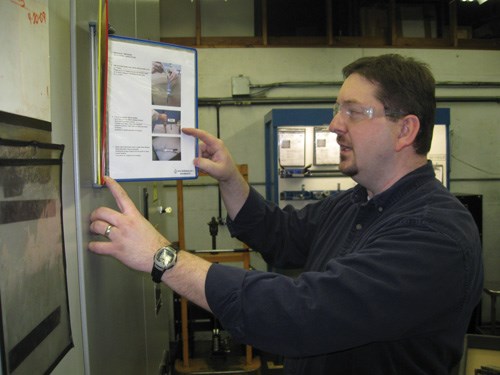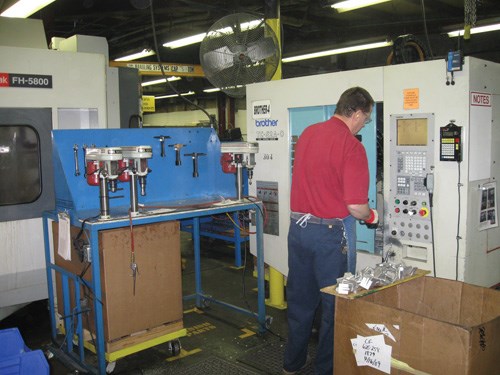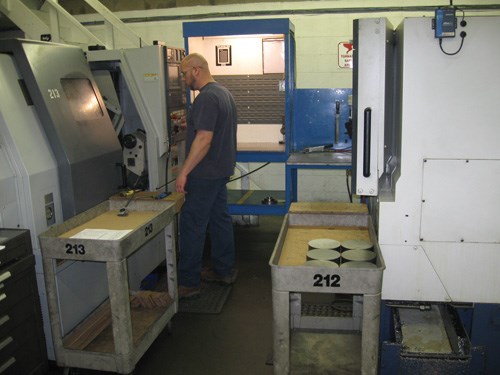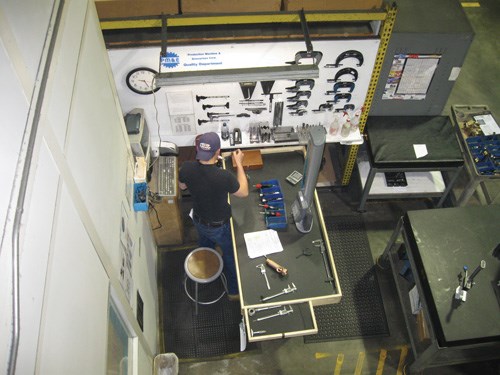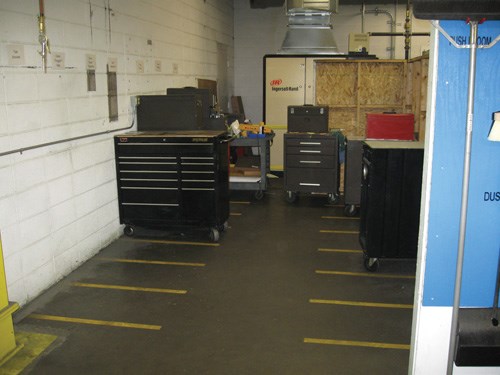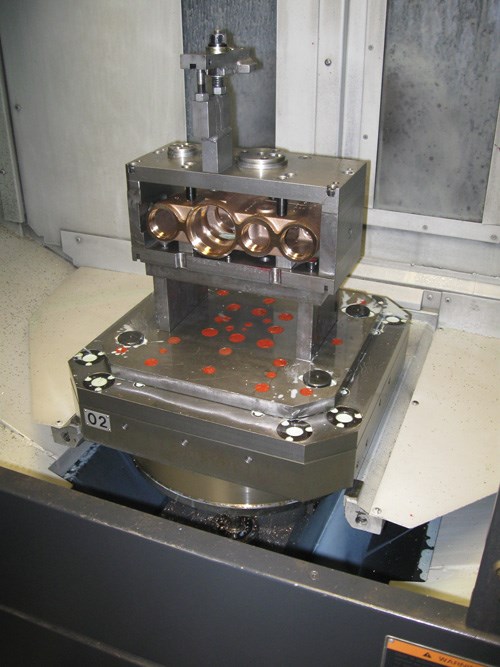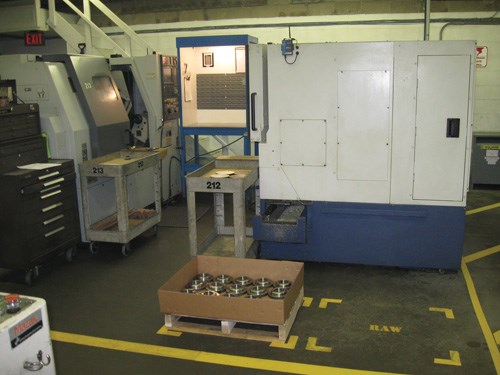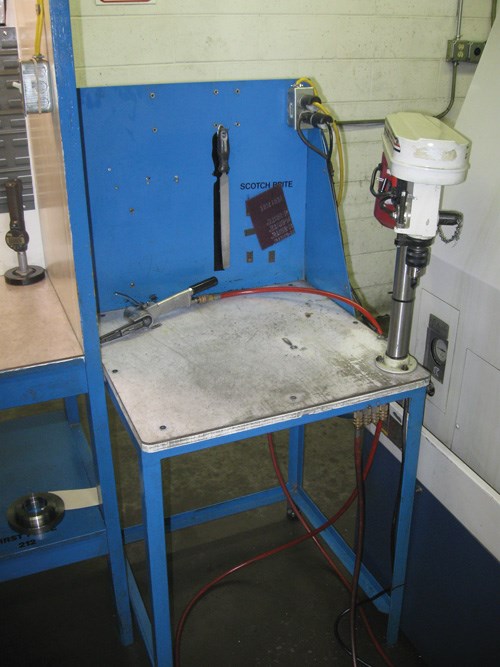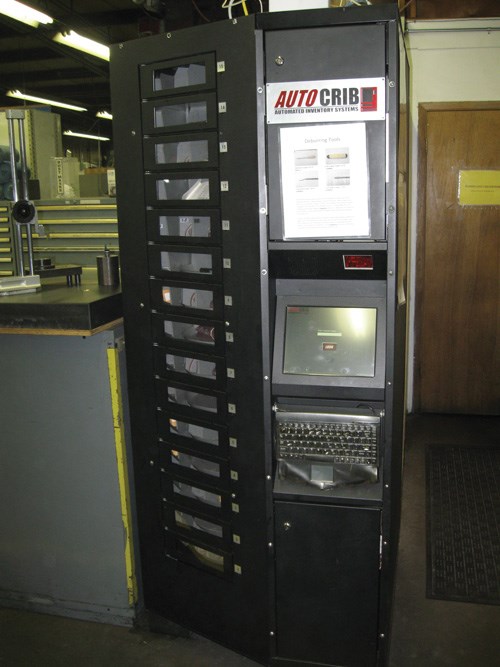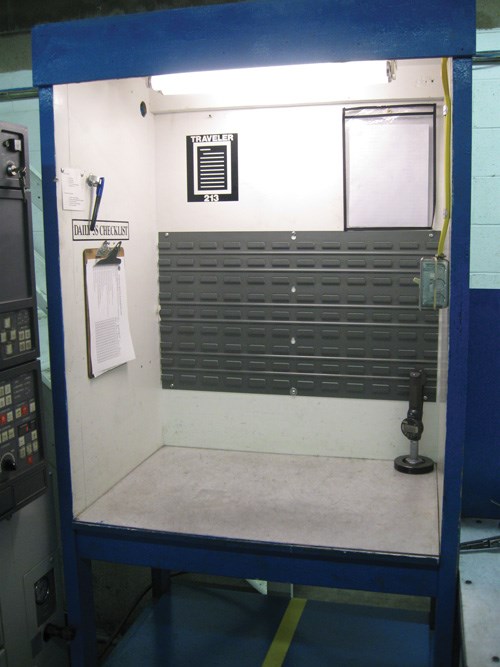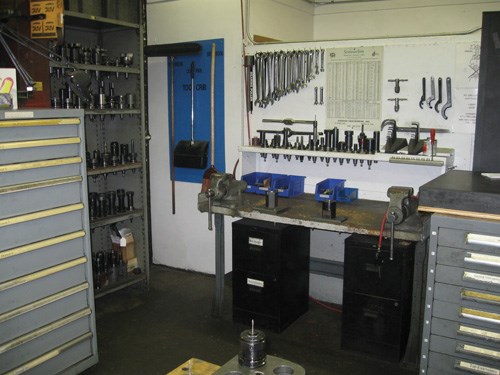Moving Forward In Order To Stay Put
This job shop’s commitment to lean allows its business to grow while it remains in the facility where it has to stay.
Share








Production Machine & Enterprises could never relocate to a bigger facility without compromising an important commercial advantage. That fact more than any other has defined this shop’s approach to lean manufacturing.
The Madison, Wisconsin shop is a contract machining facility attached to a foundry. The marriage provides for efficient machining of castings because the work can be done without delay between the two processes. Cast parts are simply wheeled through the bay from one business into the other. The only drawback to this arrangement is that it keeps Production Machine pinned into the tight location where it was founded. The property offers no room to expand, so growing the business has forced the shop to become ever more discerning about the ways that it uses its space. One interesting consequence is that “lean” here did not begin with a typical initial step such as 5S. Rather, lean manufacturing at Production Machine began with the more sophisticated lean-manufacturing practice of arranging work into cells.
For this shop, cellular arrangements of machines simply provided the most space-efficient approach, says Tim Hameister, company president. The arrangement is also time- and effort-efficient, because an operator can easily pass work from one machine to the next. However, the shop committed to this mode of organization even before it fully committed to lean. Cells are not dedicated to part numbers, because the shop has no part numbers that repeat more than sporadically, but the shop does have steadily recurring part sizes—so machines were grouped by size ranges. When the shop did formally commit to lean, these cells served as the starting point.
Operations manager Chuck Pitzlin and QC manager Eric Godwin led the lean effort. Both had worked for other manufacturers with mature lean disciplines in place, and both won Mr. Hameister’s support for trying to adopt some of these same disciplines at Production Machine.
Mr. Godwin explains that the waste that used to burden the shop largely fell into two broad, overlapping categories.
One was inventory. On multiple recurring part numbers, the shop kept 100 or more pieces in inventory just to respond to urgent orders. Was so much stock really needed?
The other category was clutter. Tools and resources were scattered throughout the shop. Toolboxes blocked the aisles. The mess was not only unsightly, but also forced the shop to both lose time and carry more inventory of various resources, because needed tools and gages could not be easily obtained.
One morning, Mr. Godwin went through the shop filling a cart with tools, refuse and other items that had been left where they didn’t belong. This full cart was the beginning of the challenge to the teams that were ultimately tasked with the goal of realizing more order in the shop through 5S and other disciplines. The message of the cart was this: We can do much better.
And the shop has done much better. Like a submarine, Production Machine now has each necessary item stowed in its proper place—as the various photographs on the preceding pages illustrate. These snapshots from throughout the shop show various devices and strategies that the shop has used to run both leaner and cleaner.
The two go hand-in-hand. Running cleaner—addressing clutter—helped address operators’ lost time. And addressing lost time has allowed the shop to reduce the inventory of finished parts it has to carry. Part numbers that once required 100 pieces in stock now require just two or three dozen.
The commitment to lean has even helped open up floor space. With the implementation of more efficient processes combined with newer and more productive machines, the shop has been able to meet even growing capacity demands using fewer machine tools—phasing out older machines to free up valuable space.
The result is something refreshing for this shop: more breathing room.
Plus, there is a renewed confidence that this long-established location for the shop can keep on meeting the needs of the business for a long time to come.
Read Next
Video: What Is 5S?
Here is a training film a job shop developed to help its employees understand 5S.
Read MoreRegistration Now Open for the Precision Machining Technology Show (PMTS) 2025
The precision machining industry’s premier event returns to Cleveland, OH, April 1-3.
Read MoreBuilding Out a Foundation for Student Machinists
Autodesk and Haas have teamed up to produce an introductory course for students that covers the basics of CAD, CAM and CNC while providing them with a portfolio part.
Read More

